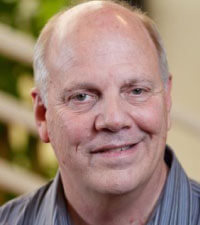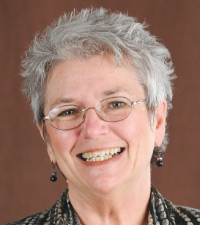Senior Living in Omaha, NE – 2019
This Spring, Spend Time with Family and Talk to Elderly Relatives about Their Priorities for Retirement Living
These late winter and early spring months are an excellent time to reflect on the health concerns of elderly loved ones and prompt a conversation with your senior relatives about their wishes for retirement and living arrangements. Those who follow the spring cleaning tradition, or would like to start, might use their spring cleaning as an opportunity to help elderly family members organize their belongings and discuss the future.
Even if a senior family member is completely healthy and capable of performing all their household tasks today, having this conversation in early years can prevent stress and confusion in later years. Many professional services can offer advice on important issues that seniors face, and the many choices and services available to assist seniors.
According to Jim Laughlin with Home Nursing with Heart, many concerns for seniors are the result of cancer or heart conditions, like heart attacks, stroke, heart failure, or any other acute health issue. “When disabilities arise, the independence of the senior is compromised,” notes Laughlin. “Although, hopefully, they can overcome the disability, sometimes they cannot. In this scenario, major decisions regarding living arrangements, costs, government support, and family support must be made. I’ve always been a proponent of the services provided by CareMATRIX for help with these decisions, as well as seeking guidance from a medical social worker, as there are a wide array of support options many people aren’t aware of out there.”
Laughlin says that it is widely recommended for families to familiarize themselves with the basic types of care that are available, make a list of choices available in their home city, and visit each individual choice to ensure it can provide all the services an individual senior requires. Some may provide more than one type of care, while others are more specialized. Most fall into these five general categories:
- Senior living—designed for seniors aged 62+ who desire to live independently.
- Assisted living—designed for seniors in need of assistance with daily activities, but not yet in need of skilled nursing care.
- Short-term and long-term skilled nursing and rehabilitation—designed for seniors in need of skilled care temporarily after a hospital stay or long-term due to chronic illness and health needs.
- Residential-style skilled nursing—designed for long-term patients who desire a more home-like environment with space for family gatherings.
- Hospice care—designed to provide compassionate care, pain management, and medical assistance in an end-of-life residential community or at home.
“An often-overlooked service is in-home care,” addresses Laughlin, “but respite care could be the best fit for your elderly loved one. Home Nursing with Heart gives access to the right medical professionals during the later years of life, or while recovering from surgery or an illness, right in the comfort of one’s own home.”
Daniel M. Ward, president of MediGuard USA, has advice from personal experience for those considering senior living options for loved ones. “Having gone through this with my mom, I advise people to take a tour of the facilities being considering. Decide if an elevator can work, check the distance from the room to the dining room, etc.”
To avoid family squabbles, Ward also believes it’s a good idea for families to discuss property and family heirlooms candidly. This can help reduce clutter for spring cleaning and give seniors the joy of sharing family memories with their children rather than worrying about disputes over inheritance. Coming from a family of 10 siblings, Ward found this helpful and rewarding in his personal life.
“Thinning out the home and getting things in order has such family benefits, and makes getting together fun and rewarding. A good place to start is for the siblings to agree on ‘taking turns’ with the parents involved. We asked our Mom to find things that she wanted to give to us, noting her thoughts and coaching her along the way, and we put names on the items that she was not ready to part with. Being one of 10 siblings, we knew how much better it would be to work it out while Mom still could have a say in it. We took pictures and notified everyone so that no one was left out. Some items we drew straws on, but most everyone worked together and we all ended up smiling and thankful.”
Ward discussed recent trends in medical alert technology which favor discreet, simple designs. “Wearing a mobile help button while Mom or Dad are still driving and going places gives you and your family the added sense of knowing they have that extra protection. With GPS, text notifications, and the sleek look now, it is more acceptable among the younger seniors to take advantage of the added services.”
Furthermore, Ward has seen advances which have allowed medical alert technology to become more affordable. “Our mobile medical alert pendants are getting smaller and smarter! Our customers are able to find them if they get misplaced, just like smart phones. Prices have dropped as well, making it very affordable.”
In contrast to transitional care, which focuses on helping patients recover and return home following a hospital visit, memory care focuses on providing ongoing support to those suffering with Alzheimer’s or dementia. This is why it is important for families to keep the differing types of care in mind. Not all services may fit an individual’s particular needs. To help ensure that their community can meet an individual’s medical and social needs, Douglas County Health Center (DCHC) hires an admissions team tasked with guiding families who are considering senior care through the process. Douglas County Health Center offers five pieces of helpful advice for families choosing a nursing community:
- Know the needs of your loved one. Do they need short-term/sub-acute care for an injury or illness? Or do they need long-term care to provide help with daily tasks due to chronic illness or dementia?
- Consider what is important to your loved one. Various communities can offer different benefits like meal plans and physical therapy in addition to medical care.
- Ask for recommendations from family, friends, social workers, or religious or social groups you are part of to create a list of possible homes. Many health care providers can also recommend nursing homes they believe provide quality care.
- Call each community on your list to ask any questions you have about costs. Be sure to ask if they have a waiting list.
- Visit each community on your list and ask if you can speak with their social services director.
- In addition to round the clock nursing services and activities programming, DCHC offers three types of care:
- Rehabilitation services, focused on therapy and helping increase independence
- Memory care, focused on providing a comfortable and secure enviroment for those with Alzheimer’s or dementia
- Respite care, meant to help the families of seniors who live at home with temporary care services
Because of the variety of living arrangements available to seniors, some local organizations specialize in offering information drawing from their experience in the health care field to families seeking answers to their questions. Kyle Johnson, RN, CCM, CSA, is the owner of Oasis Senior Advisors in Omaha, a free, local, community-based referral placement service for seniors and their family members. “Oasis Senior Advisors is a referral placement service specifically geared towards seniors who are no longer able to live at home. Our role is to educate and inform clients about the many senior living options here in the Omaha community and surrounding areas,” says Johnson.
Many families are surprised to hear that, as a service to seniors, this assistance is complimentary. “Any assistance we provide is absolutely free of charge, no strings attached. We work with seniors and their loved ones in order to streamline the process of finding new living arrangements, which unfortunately can be an extremely stressful situation. We also connect clients to other resources they may need,” says Johnson, who is experienced with communicating with families with questions about dementia and Alzheimer’s about options that are available to them.
“I’ve found that of those who are going through the process of finding their elderly loved ones new places to call home, and not just anywhere but at a facility that’s the best fit possible for that individual, many do not know that a service like this exists. By simply applying the right expertise, I’m able to minimize the stress of this process on everyone involved.”
Kyle Johnson is also the owner of Care Consultants for the Aging. He discussed some of the materials available to walk families through these topics and empower them to make their decisions. “We are Nebraska’s largest in-home care registry. All of our caregivers are CNAs and they work directly for the client. The client is 100% in control of their caregiver schedule, and we do not require any minimum of hours or financial deposit to begin services,” says Johnson.
A resource they offer is the ElderCare Resource Handbook. “This is a publication that our office puts out every two years, and has hundreds of resources for any elder care need. Please visit OmahaHandbook.com, or stop by our office to pick a copy of your own,” says Johnson.
Johnson believes the winter months can be an isolating time for seniors and offers this advice: “We strongly encourage our clients to find a senior center near their home where activities take place daily, and many times will include a meal option. Many local churches also have retirement groups that meet frequently and do local outings together.”
The top advice Johnson offers families considering living options is to speak with a professional and tour communities alone. “This will give you a better understanding of what home care can provide versus the need to make a move. Everyone we work with wants to stay as independent as they can and live in their own home. However, when the care levels increase to a point where a move to a senior community is best suited, we advise our clients and help them in that transition as best possible,” says Johnson.
One important aspect for families to consider is whether a more independent senior will gradually require more attention and care because of the aging process. There are also some homes that offer respite or adult day care services for families who want their senior relatives to still live at home, but feel that they require occasional assistance on certain days. Founded by Jack and Eldora Vetter, the mission of Brookestone Meadows is “Dignity in Life.” Jack and Eldora Vetter’s legacy of senior care began in 1975. Brookstone describes the way their mission guides their services in this way: “It means we strive to provide everything residents need (physically, emotionally and spiritually) to feel respected, fulfilled, useful, healthy and secure.” Brookestone Meadows’ living options include both short-term rehabilitation (sub-acute care), and long-term care (skilled-nursing).
Their specialized programs focus on specific medical needs, for example, their restorative programs designed to improve independence and mobility. Respite care is intended for families who are the primary caretakers of someone with a disability, but require short-term, temporary assistance with care giving. Their hospice care provides patients with a life-limiting illness access to medical professionals, hospice organizations, clergy, counselors, and skilled volunteers.
Four core values guide Brookestone Meadows’ mission:
- Serving: We succeed by focusing our attention and energies on anticipating and exceeding people’s expectations. Our actions are driven by a “Yes, I Can” attitude and the commitment that we are “Family Serving Family.”
- Integrity: Our relationships, services and decisions will speak for our desire to always act with honesty, fairness, and compassion. People learn from interacting with us that they can trust us to be who we say we are and do what we say we’ll do. We strive to act in a way that will make God smile at our efforts.
- Teamwork: Our relationships are built on mutual trust and respect. We recognize the value and worth of each person we are privileged to encounter, work with, and serve. We seek to understand what is important to others and let people know they are appreciated for who they are and what they do.
- Excellence: We continually pursue opportunities to improve ourselves and the services we provide. We learn from our experiences, build on our successes, and make changes when changes are beneficial. We develop people’s strengths and remain committed to becoming the Best of the Best.
To help families understand the kinds of social events and activities available for residents, and in order to plan visits to join their family at social gatherings, Brookestone Meadows publishes a monthly Life Enrichment Calendar, which can be read and downloaded under the events tab on Brookestone Meadow’s website.
Bridge to Better Living (BBL) provides a free service to clients and their families when they are considering moving to an independent, assisted, memory-assisted, or long-term care community. We looked to Robbie Nathan for some helpful advice, as she brings 35 years of experience in home health care as the director of training and staff development for Bridge to Better Living.
“Bridge to Better Living is a locally owned Senior Living Transition Placement service. We pride ourselves on ‘Placement with Passion’ and have an excellent reputation for lessening the stress of those researching a senior living option. We are at no cost to the client and a person-to-person service, not a computer-based business. BBL engages families at all levels of care: independent, assisted, memory-assisted, and skilled. Their transition consultants have diverse backgrounds in health and administration as well as a vast knowledge of local resources. Bridge to Better Living has established long term relationships with each community to help facilitate a successful placement,” says Nathan.
Nathan believes that current trends indicate the demand for senior care services will continue to grow, and that it will be important for seniors and their families to be aware of both Medicare requirements and any changes in legislation affecting the healthcare industry.
“Every day 10,000 people turn 65 years of age making it important to stay current with legislation and other changes in healthcare. Medicare has changed the requirements for obtaining rehab coverage. It is important for those on Medicare to know how long they must be hospitalized, and under which diagnoses in order to have full coverage in a rehabilitation setting. This information can be found online at www.medicare.gov or by calling 1.800.MEDICARE. Everyone should have a medical power of attorney to advocate for them when they are not able to discuss or make health care decisions on their own. A medical and/or financial power of attorney is also advised when considering assisted, memory-assisted, and long-term care,” explains Nathan.
In Nathan’s experience, many families will tell Bridge to Better Living consultants that they wish the decision to move to a retirement community had been made sooner. “It is difficult to put one’s needs first after years of placing others needs before your own. Aging adults need to accept it is perfectly fine to have others care for them whether it is household chores or personal care assistance. Many baby boomers have not invested in long-term care insurance and still expect to be able to fund their needs if in an assisted living need or a higher level of care arises,” advises Nathan.
In order to help afford expenses, long-term care policies, financial assistance for veterans, and local support groups can all assist families with costs. “Investing in a good long-term care policy often results in over half of the expenses being covered. Veterans should contact their VA representative to determine eligibility for financial assistance. Support groups exist for families facing a life-changing diagnosis and connect participants with specific community resources as well as offering emotional support in order to help them cope,” explains Nathan. An advantage of helping a senior consider their personal situations is reducing their concerns regarding a move to retirement living. “As people age their worlds become smaller; less of the house is used; driving distances are shorter and meals change in portion size and nutritional content. Bridge to Better Living finds the seniors who have ‘slid’ into these changes without regret most often transition to a new senior living option with less stress,” says Nathan.
Being able to socialize is a very important need for everyone, especially seniors. “Bridge to Better Living consultants are engaged in many community groups and have reliable resources for seniors and loved ones when they express concern about changes. Because BBL has helped hundreds of seniors and families, we are often able to introduce like-minded clients to each other when touring. This personal connection helps to let others know they are not the first, nor the last, to transition to a new style of living.”
One of the most important pieces of advice Nathan emphasized was for families to have open conversations about their health and living options earlier rather than later. “Accepting these changes results in an improved quality of life. Consultants at Bridge to Better Living often hear clients say they wish the decision to move to a retirement community had been made sooner,” says Nathan.
The advantage of having a conversation with senior family members earlier rather than later is that it gives them a chance to vocalize their priorities and concerns for their future. If spring cleaning is an opportunity for adults to make arrangements for their home, it can also serve as an opportunity for family members to help each other prepare plans for the future.





